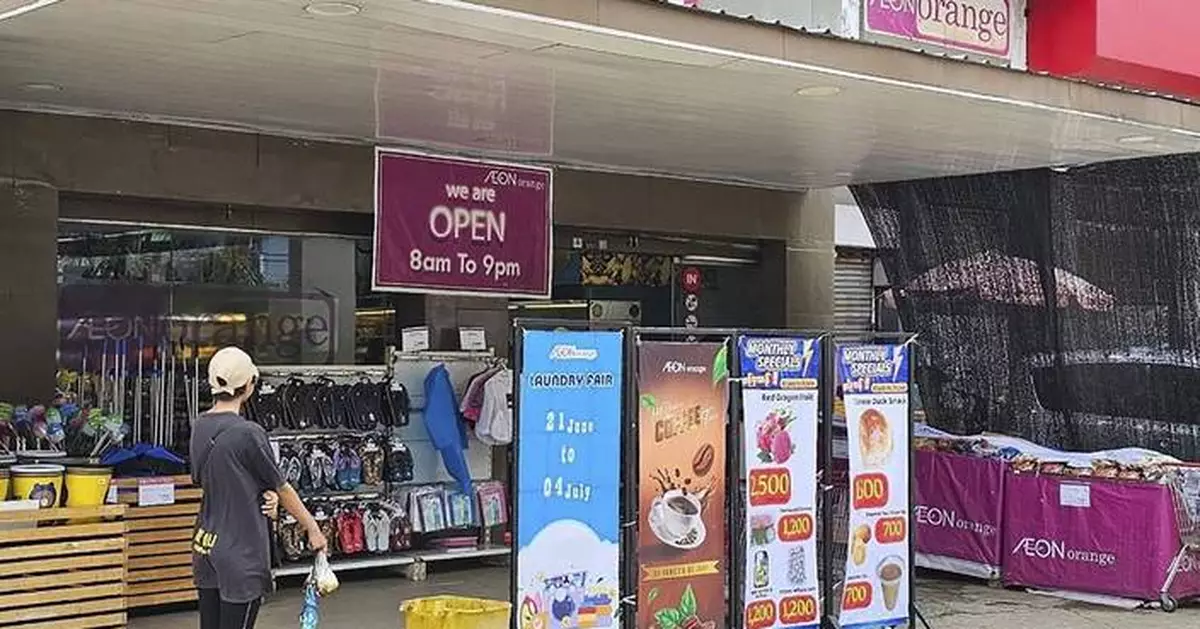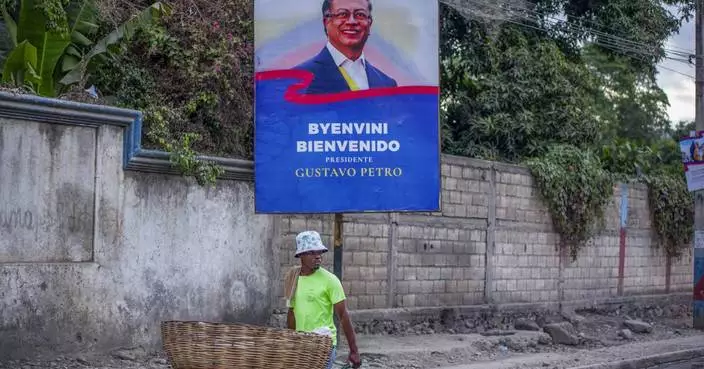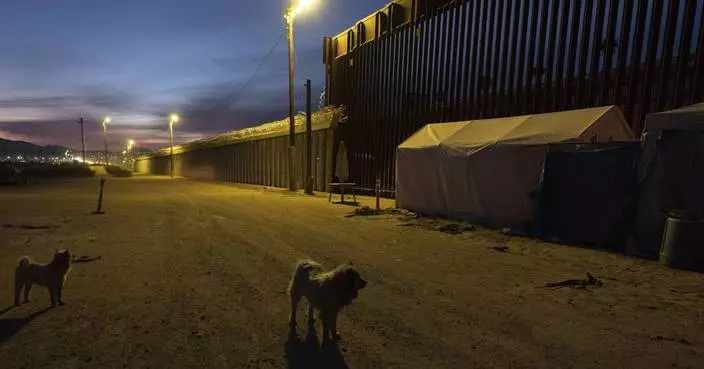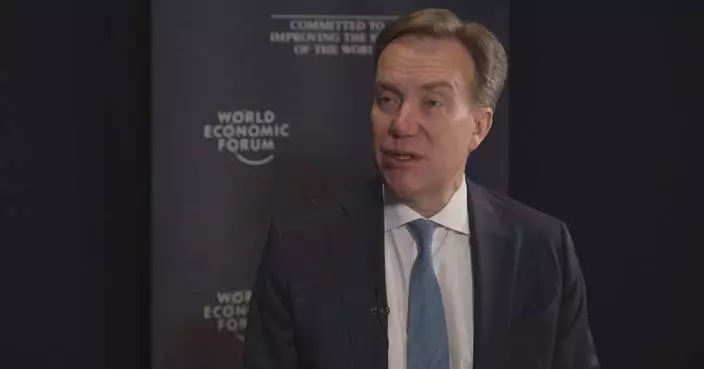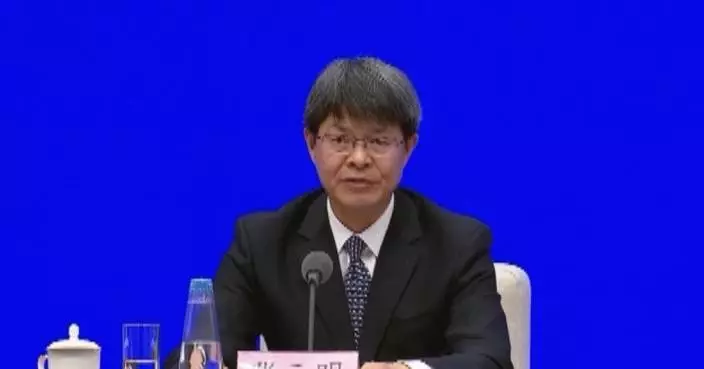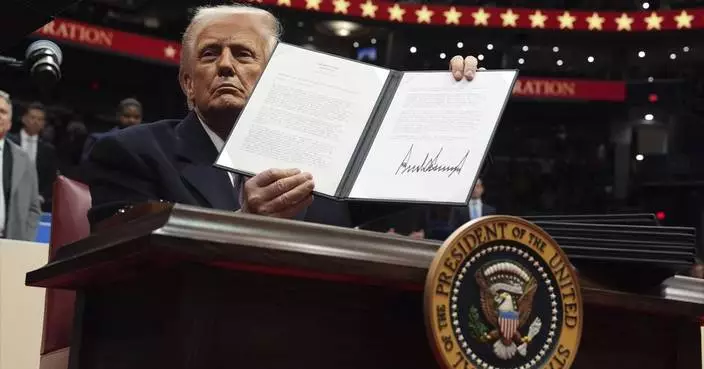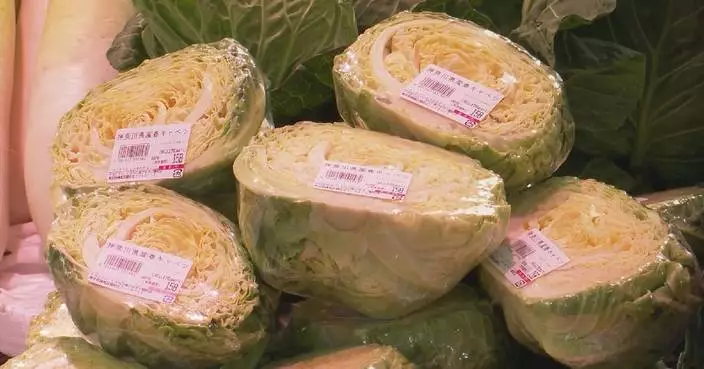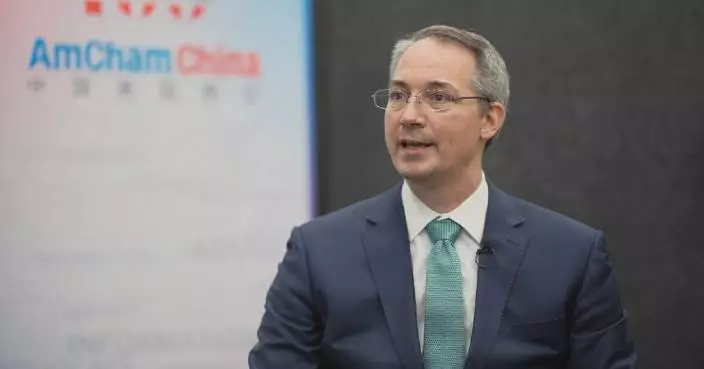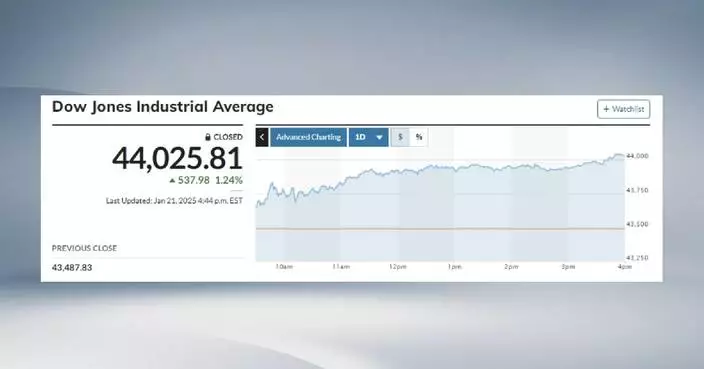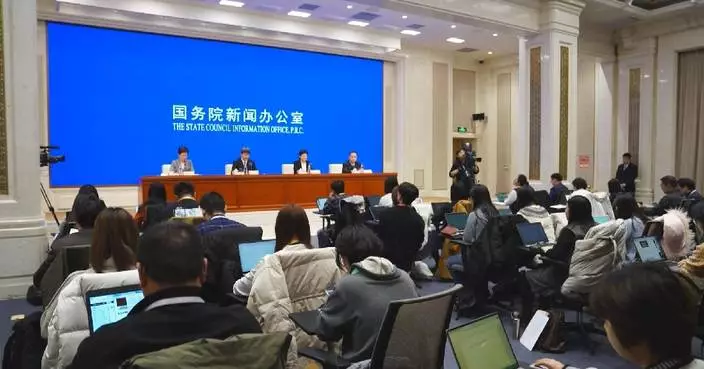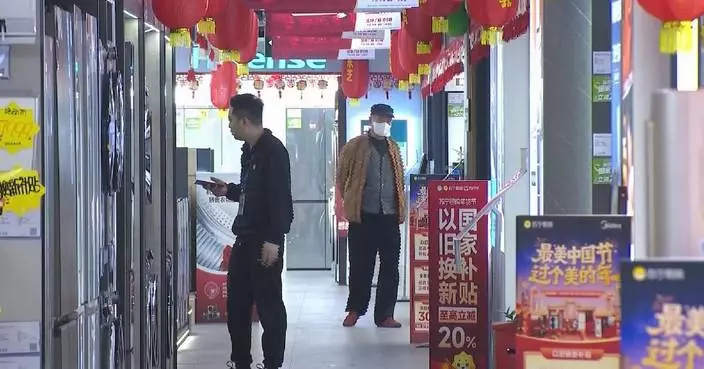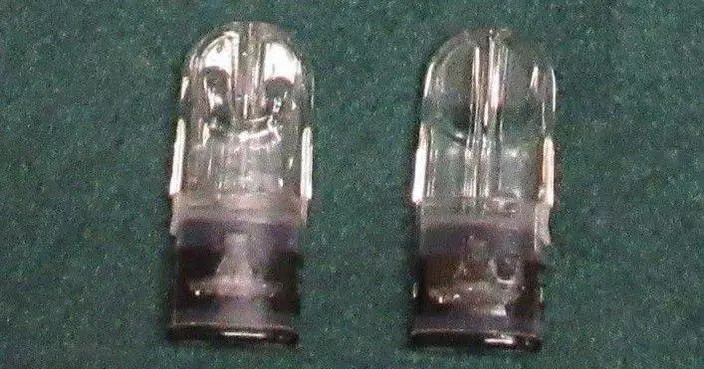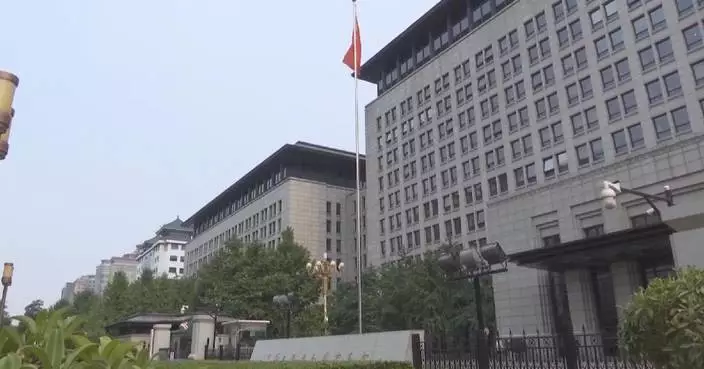TOKYO (AP) — A Japanese business executive has returned home from Myanmar following his release from more than a month of detention after being convicted of violating rice pricing rules, his company said Wednesday.
Hiroshi Kasamatsu, a director of the Myanmar supermarket Aeon Orange, was in custody in Myanmar since his June 30 arrest for selling rice at prices above the official regulations. Japan’s Foreign Ministry confirmed Monday that the Japanese national was convicted of violating law related to daily necessities and service. He was sentenced to one year in prison and fined 500,000 kyat (about $150).
His parent company Aeon released a statement Wednesday confirming his return home after the conviction. The company said that retailers operating in Myanmar had no way of knowing the change of law in that country about the rice pricing, which caused Aeon Orange's rice prices to “deviate” from the controlled price in violation to the related law.
The company apologized for causing trouble and thanked Japanese Foreign Ministry and others for their support that allowed Kasamatsu's safe return home.
Kasamatsu was freed Monday afternoon, said Maj. Gen. Zaw Min Tun, spokesperson for the Myanmar’s ruling military council.
The Japanese Foreign Ministry said it was unclear if Kasamatsu would stay in Myanmar or return to Japan. He was released from custody and is in good health, it said, but declined to give further details.
Rice is vital in Myanmar, a country struggling to stabilize its economy as civil war disrupts efforts to recover from the COVID-19 pandemic. The army seized power from the elected government of Aung San Suu Kyi in 2021, triggering nonviolent protests that have evolved into armed resistance.
Aeon Orange is a part of Japan’s retail giant Aeon group, and operates several supermarkets in Myanmar. Aeon said it had no immediate comment.
Kasamatsu was among a number of foreign executives arrested on similar allegations in Myanmar.
The state-run Myanmar Alin newspaper reported in early July that the arrests for allegedly overpricing rice — from 31% to 70% over official prices set by the Myanmar Rice Federation — involved 62 suspects, 102 warehouses, 53 supermarkets and superstores, 25 mills and seven other shops in major cities.
Japan has historically maintained friendly ties with Myanmar. Compared with many Western nations, it took a softer approach toward Myanmar’s military government over its poor human rights record and undermining of democracy. Tokyo has not imposed economic sanctions though it does not acknowledge the legitimacy of the current government and urges restoration of democracy, and limits Japanese aid to humanitarian purposes.
Associated Press writer Grant Peck contributed from Bangkok.
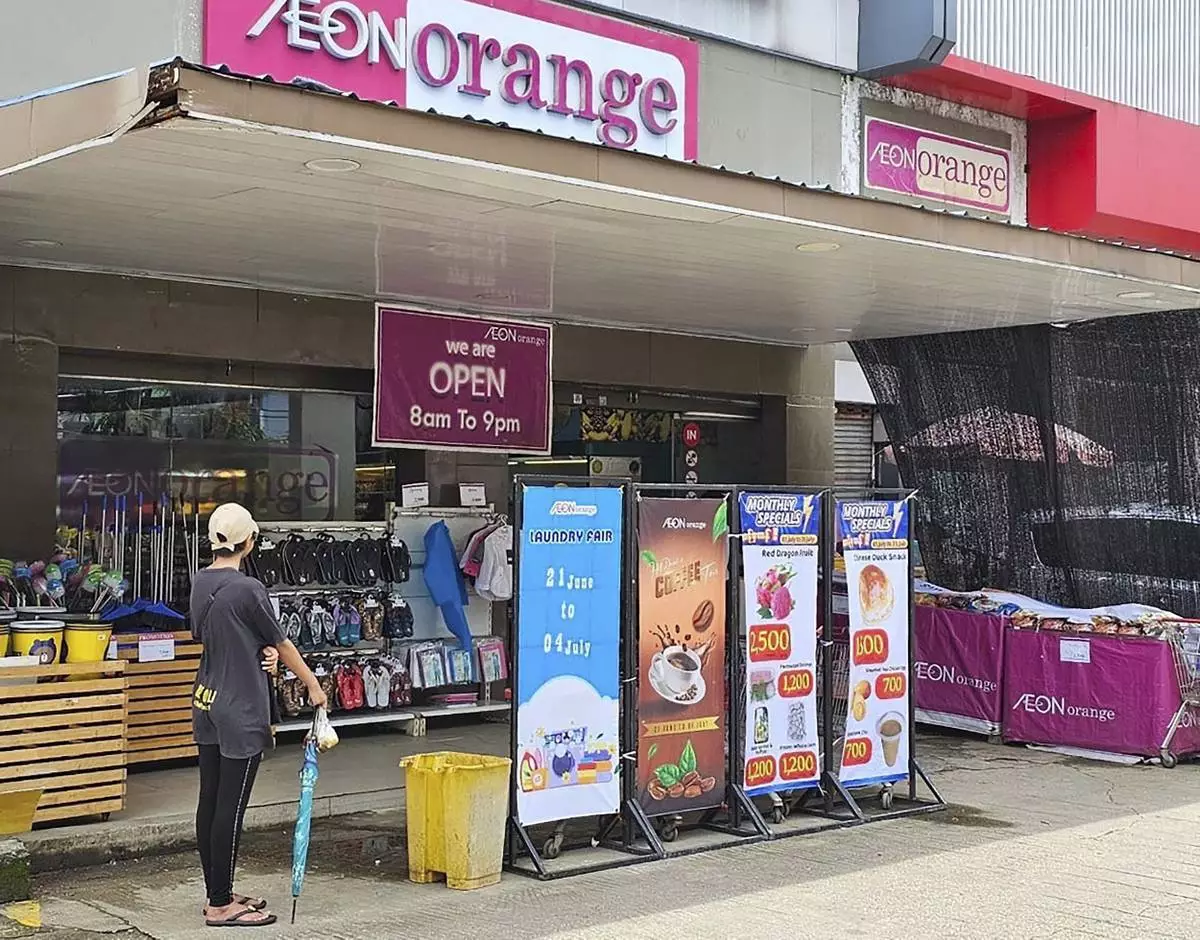
This shows a supermarket of Aeon Orange in Yangon, Myanmar in July 2024. (Kyodo News via AP)
ROME (AP) — Human rights groups voiced outrage Wednesday after Italy released a Libyan warlord on a technicality, after he was arrested on a warrant from the International Criminal Court accusing him of war crimes and crimes against humanity.
The Hague-based court, for its part, issued a more diplomatic response but its anger appeared evident. In a stern statement late Wednesday, the ICC reminded Italy that it is obliged to “cooperate fully” with its prosecutions and said it was still awaiting information about what exactly Rome had done.
The reaction came after the Italian government on Tuesday released and sent back home Ossama Anjiem, also known as Ossama al-Masri, who heads the Tripoli branch of the Reform and Rehabilitation Institution, a notorious network of detention centers run by the government-backed Special Defense Force.
Al-Masri had been arrested Sunday in Turin, where he reportedly had attended the Juventus-Milan soccer match the night before. The ICC warrant, dated the day before, accused al-Masri of war crimes and crimes against humanity committed in the Mitiga prison in Libya starting in 2015 that are punishable with life in prison.
The ICC said he was accused of murder, torture, rape and sexual violence. It said the warrant was transmitted to member states on Saturday, including Italy, and that the court had also provided real-time information that he had entered Europe.
The court said it had reminded Italy at the time to contact it “without delay” if it ran into any problems cooperating with the warrant.
But Rome’s court of appeals ordered al-Masri freed Tuesday, and he was sent back to Libya aboard an aircraft of the Italian secret services, because of what the appeals court said was a procedural error in his arrest. The ruling said Justice Minister Carlo Nordio should have been informed ahead of time, since the justice ministry handles all relations with the ICC.
The ICC said it had not been given prior notice of the Rome court's decision, as required, and “is seeking, and is yet to obtain, verification from the authorities on the steps reportedly taken.”
Al-Masri returned to Tripoli late Tuesday, received at the Mitiga airport by supporters who celebrated his release, according to local media. Footage circulated online showed dozens of young men chanting and carrying what appeared to be al-Masri on their shoulders.
“This is a stunning blow to victims, survivors and international justice and a missed opportunity to break the cycle of impunity in Libya,” said Amnesty International’s Esther Major, deputy director of research for Europe.
Nordio appeared in the Senate on Wednesday for a previously-scheduled briefing, and was grilled by outraged opposition lawmakers who demanded clarity about what happened. Former Premier Matteo Renzi accused the right-wing government of hypocrisy given its stated crackdown on human traffickers.
“But when a trafficker whom the International Criminal Court tells us is a dangerous criminal lands on your table, it’s not like you chase him down, you brought him home to Libya with a plane of the Italian secret services,” said Renzi of the Italia Viva party. “Either you’ve gone crazy or this is the image of a hypocritical, indecent government.”
The Democratic Party demanded Premier Giorgia Meloni respond specifically to parliament about the case, saying it raised “grave questions” given the known abuses in Libyan prisons for which al-Masri is accused. Nordio didn't respond.
Italy has close ties to the internationally recognized government in Tripoli, on whom it relies to patrol its coasts and prevent waves of migrants from leaving. Any trial in The Hague of al-Masri could bring unwanted attention to Italy’s migration policies and its support of the Libyan coast guard, which it has financed to prevent migrants from leaving.
Human rights groups have documented gross abuses in the Libyan detention facilities where migrants are kept, and have accused Italy of being complicit in their mistreatment.
Two humanitarian groups, Mediterranea Saving Humans and Refugees in Libya, which have documented abuses committed against migrants in Libyan detention facilities, said they were incredulous that Italy let al-Masri go.
David Yambio, a 27-year-old from South Sudan who said he was abused by al-Masri while he was detained at the Mitiga prison in 2019-2020, said he felt betrayed by Italy. Yambio, who eventually escaped from the prison and arrived in Italy on a smuggler’s boat in 2022, said he had a “fleeting feeling of justice” when he heard that al-Masri had been arrested in Turin.
“Those who waited long before me, the Libyans who are victims of his criminal network, his war crimes, have been wanting for this day to come,” said Yambio, who received asylum and now lives in Modena and runs his Refugees in Libya advocacy group. “But when it came, it was immediately extinguished hours before it could even truly be felt in our hearts.”
But Tarik Lamloum, a Libyan activist working with the Belaady Organization for Human Rights which focuses on migrants in Libya, said Italy’s release of al-Masri was expected. He said his release shows the power of militias who control the flow of migrants to Europe through Libya’s shores.
“Tripoli militias are able to pressure (Italy) because they control the migrants file,” he told The Associated Press.
Militias in western Libya are part of the official state forces tasked with intercepting migrants at sea, including in the EU-trained coast guard. They also run state detention centers, where abuses of migrants are common.
As a result, militias — some of them led by warlords the U.N. has sanctioned for abuses — benefit from millions in funds the European Union gives to Libya to stop the migrant flow to Europe.
The European Commission spokesman reaffirmed all EU members had pledged to cooperate with the court.
“We respect the court’s impartiality and we are fully attached to international criminal justice to combat impunity," said EU commission spokesman Anouar El Anouni. In a 2023 summit, the EU leaders committed “to cooperate fully with the court, including rapid execution of any pending arrests,” he added.
Magdy reported from Cairo. Paolo Santalucia in Rome and Molly Quell in The Hague contributed.
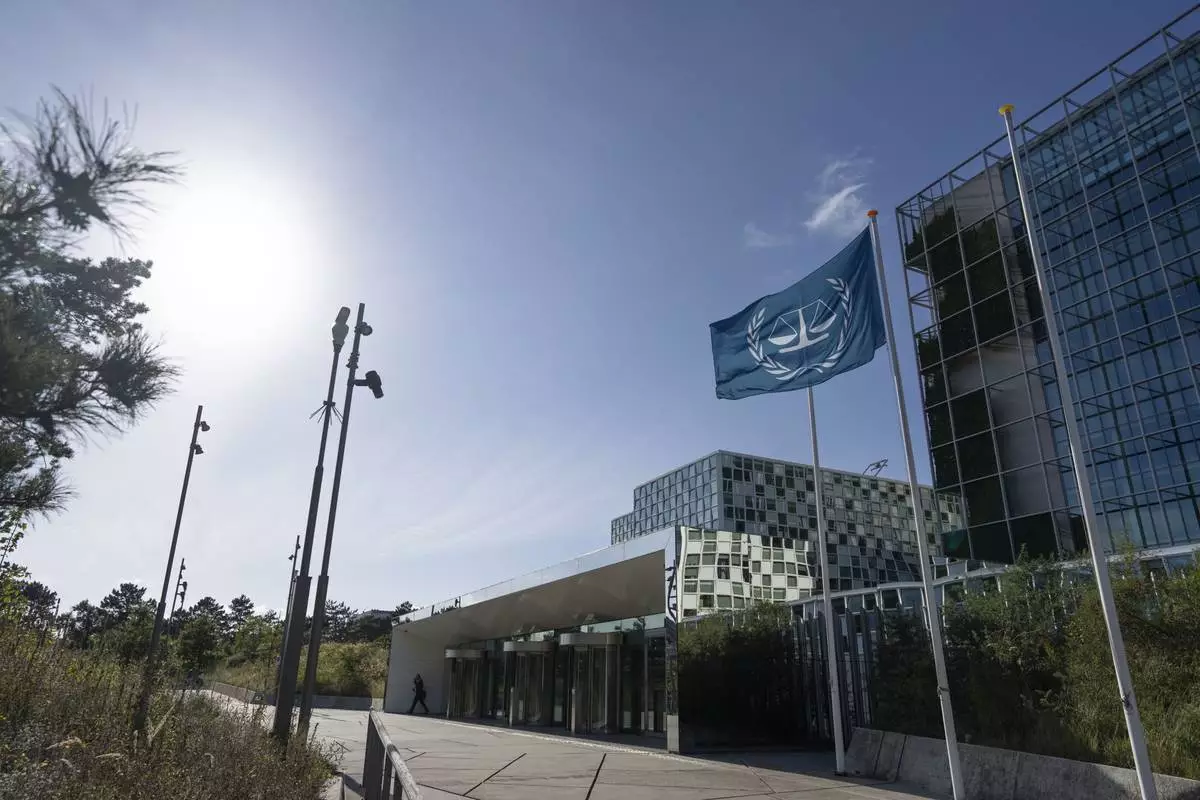
FILE - View of the ICC, the International Criminal Court, in The Hague, Netherlands, Monday, Sept. 16, 2024. (AP Photo/Peter Dejong, File)
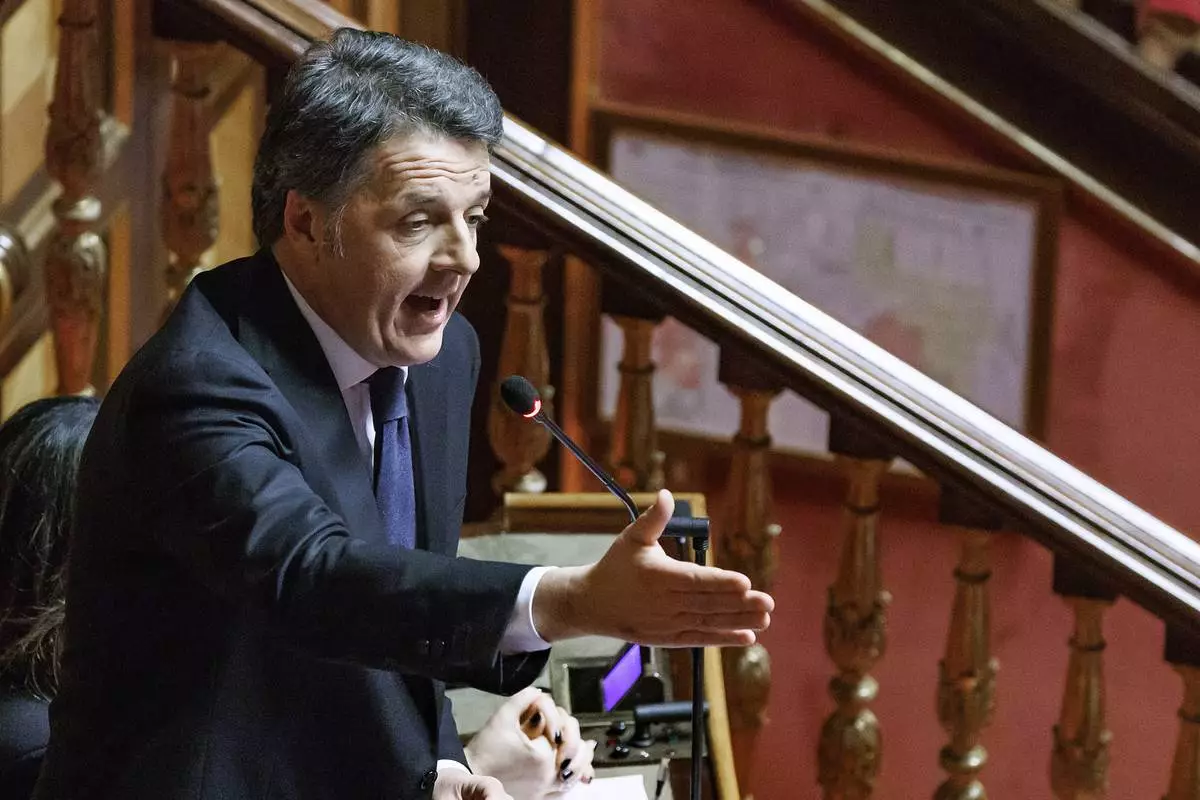
Former Prime Minister Matteo Renzi makes his remarks during Justice Minister Carlo Nordio's appearance at the Senate for the report on the justice administration, in Rome, Wednesday, Jan. 22, 2025. (Roberto Monaldo//LaPresse via AP)
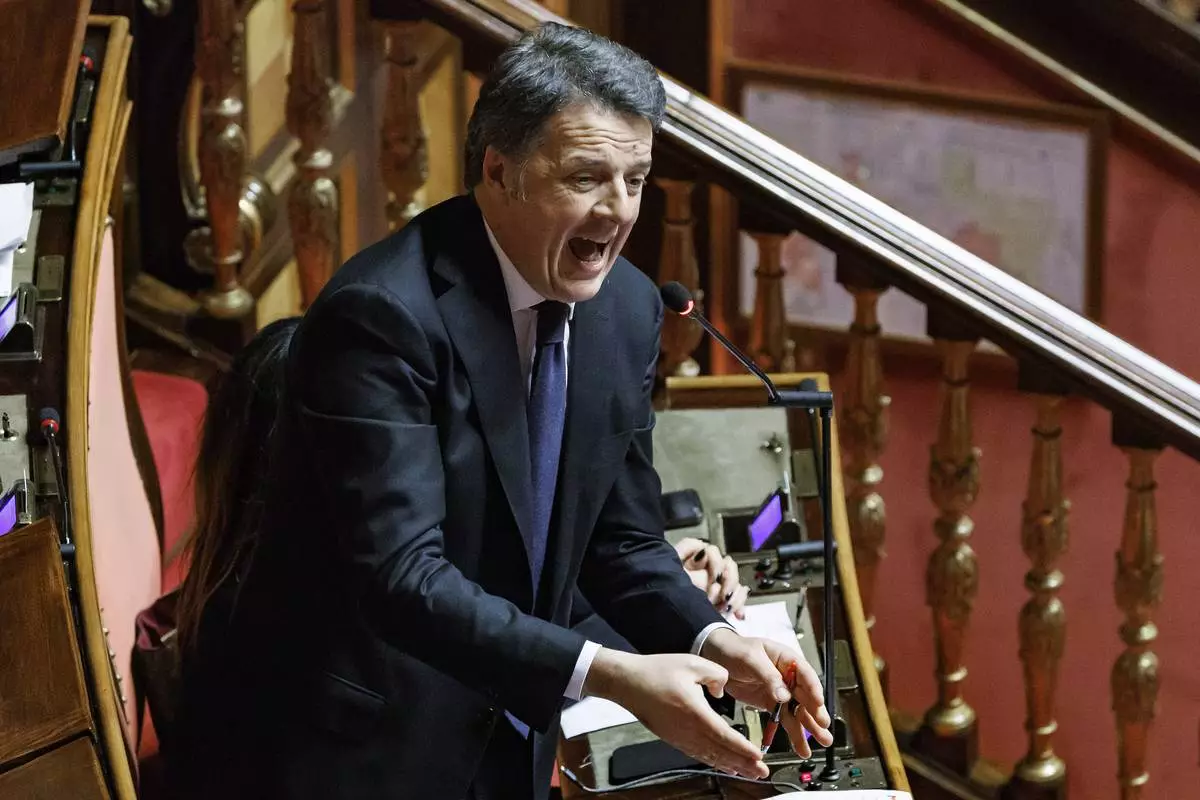
Former Prime Minister Matteo Renzi makes his remarks during Justice Minister Carlo Nordio's appearance at the Senate for the report on the justice administration, in Rome, Wednesday, Jan. 22, 2025. (Roberto Monaldo//LaPresse via AP)
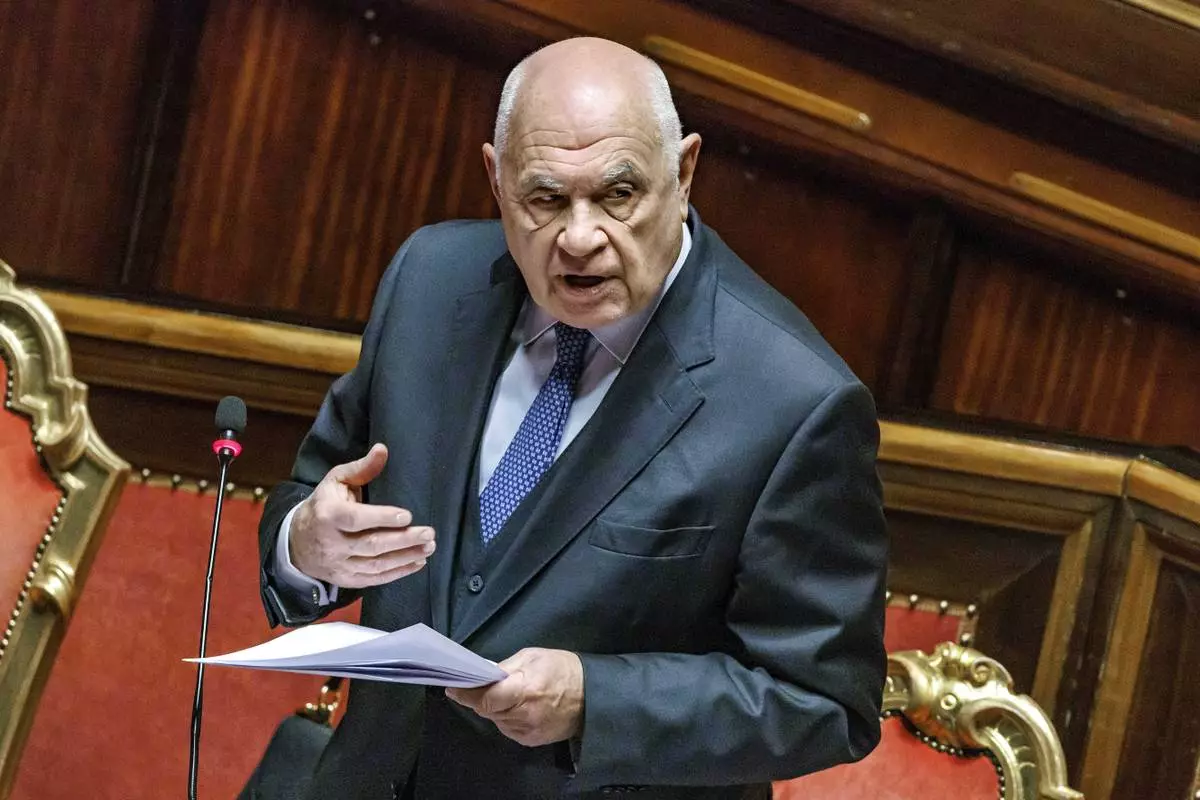
Justice Minister Carlo Nordio addresses the Senate during the report on the justice administration, in Rome, Wednesday, Jan. 22, 2025. (Roberto Monaldo//LaPresse via AP)
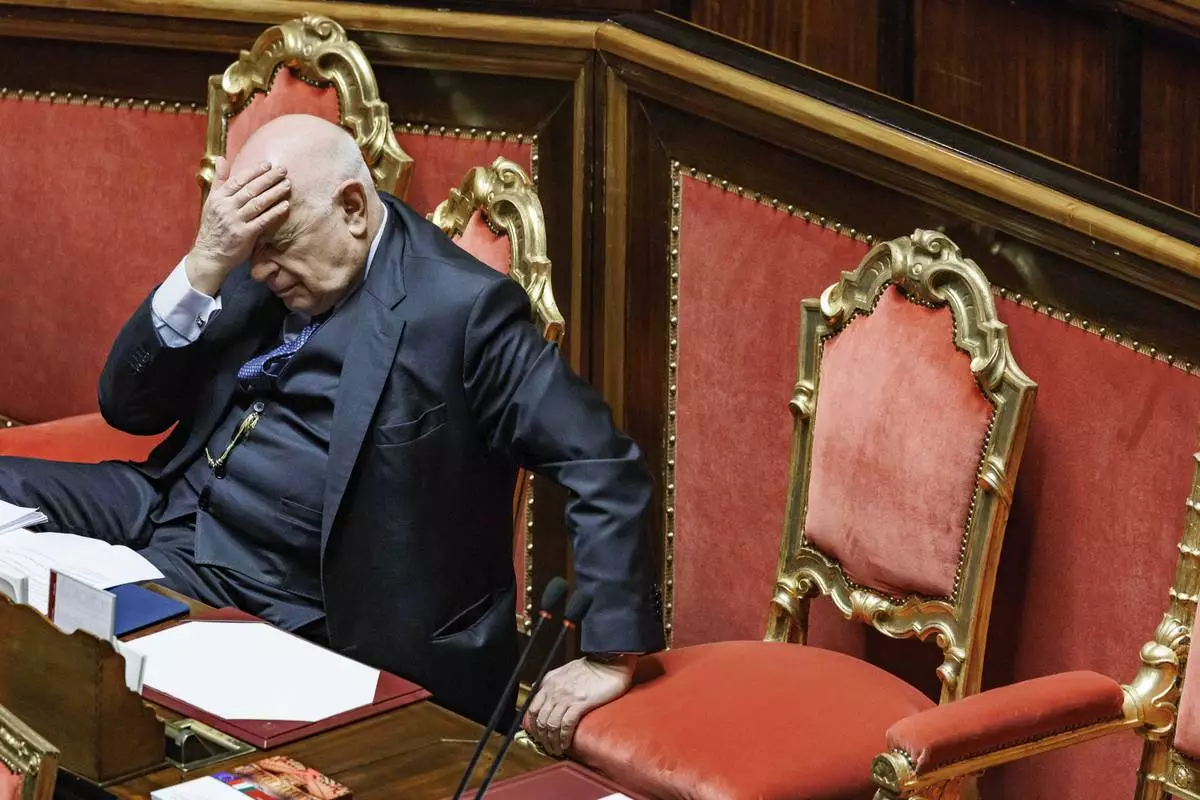
Justice Minister Carlo Nordio puts his hand to his head during the presentation of the report on the justice administration, at the Senate, in Rome, Wednesday, Jan. 22, 2025. (Roberto Monaldo//LaPresse via AP)
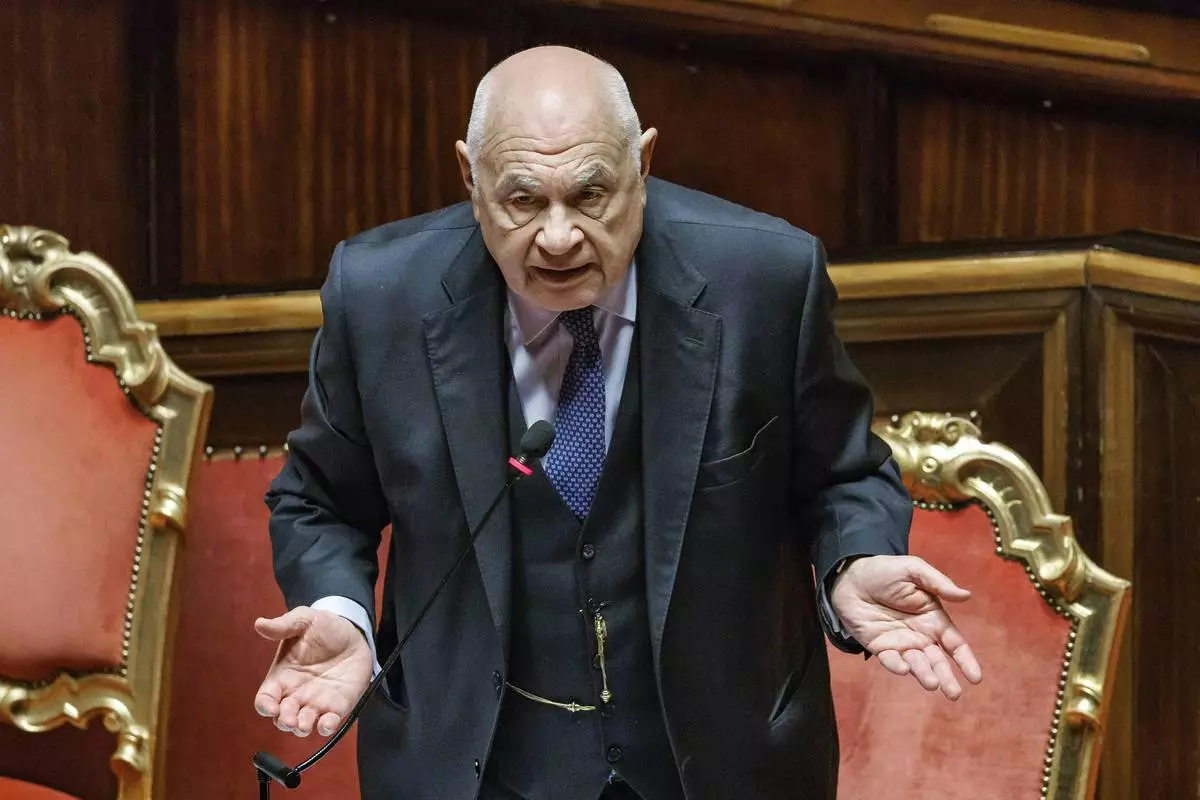
Justice Minister Carlo Nordio addresses the Senate during the report on the justice administration, in Rome, Wednesday, Jan. 22, 2025. (Roberto Monaldo//LaPresse via AP)



